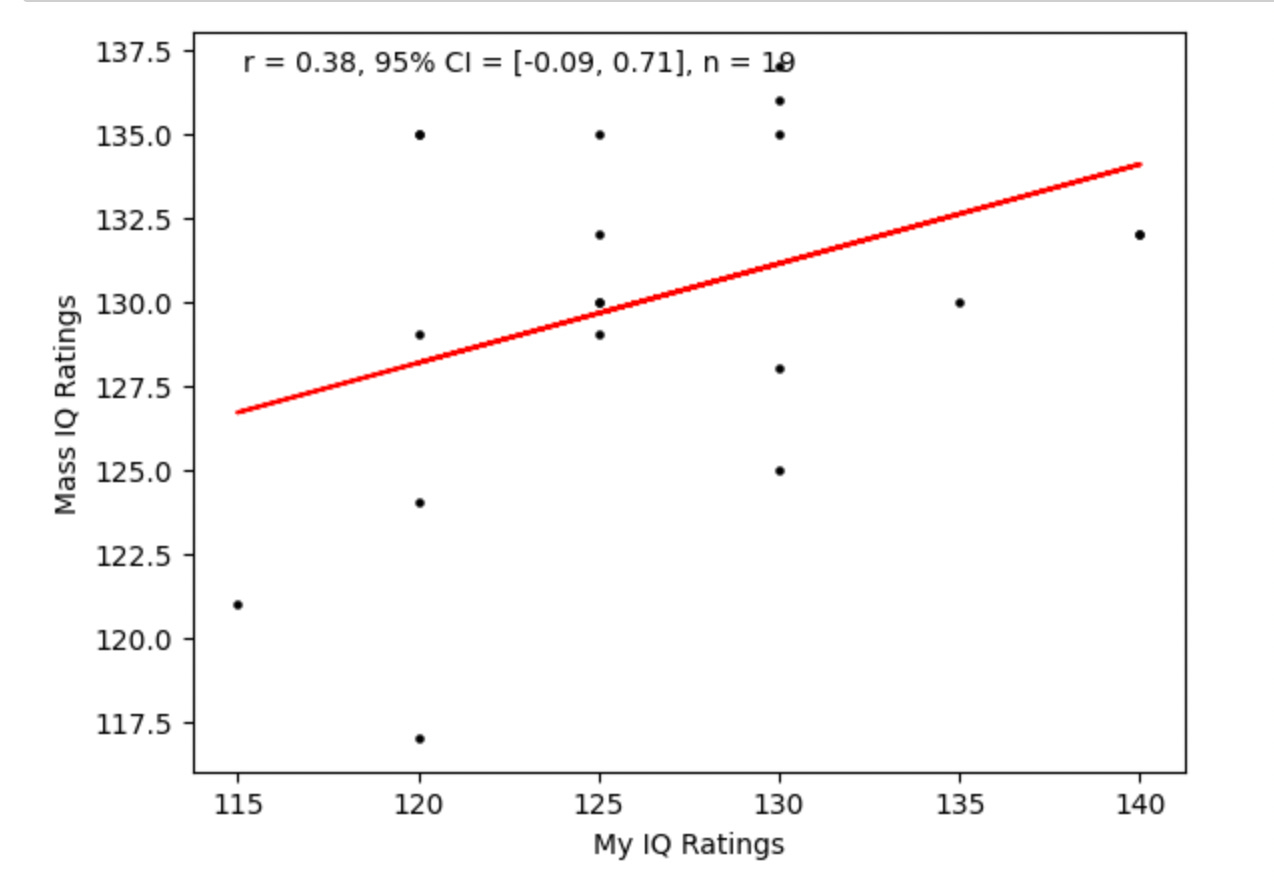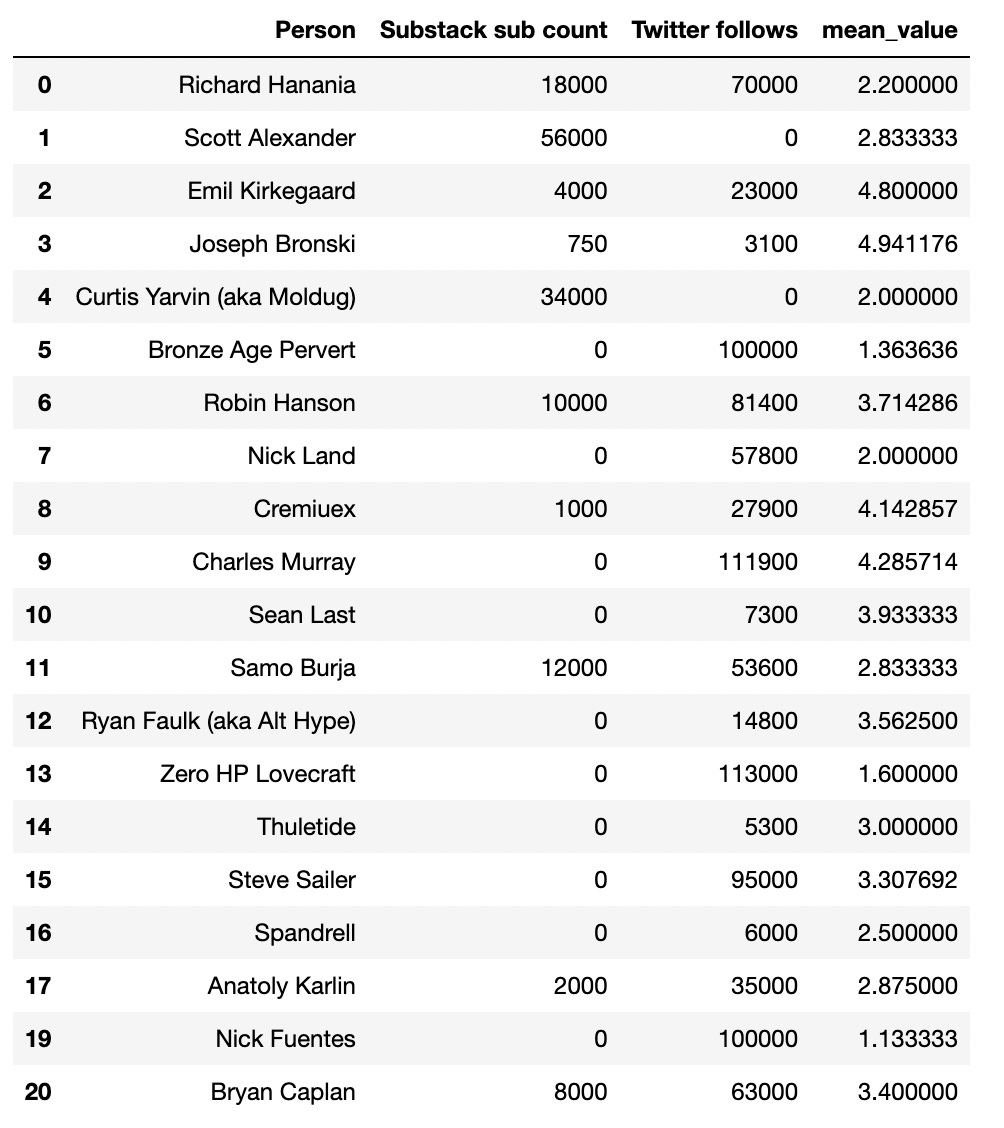Want to succeed on Right-wing Twitter and Substack? Make 'simple' content
This audience sphere rewards simpler, verbal content over sophisticated thought and research
I got bored, so I gave a poll on Twitter asking people to rate the complexity of the content of different ‘dissident right’ figures. Here were the categories:
I correlated the means of the rankings with follower counts, as well as their mass IQ estimates.
Three main findings emerged. 1) Content complexity aka content IQ is uncontroversial. Variance is very low for these scores and my pre-hoc ratings correlate very highly with mean mass ratings.
2) within the ‘DR’ / ‘HBD sphere’, lower content complexity strongly predicts higher popularity, meaning this audience rewards low complexity.
3) for some reason people don’t really share my prior that you can estimate someone’s actual IQ from the best assortment of intellectual output they make. I think it’s obvious that if someone only ever puts out “vibes written at an 8th grade reading level, unoriginal assertions, anecdotes, consensus and authority promotion”, they are probably, but not always, lower IQ than someone who usually does “original research, complicated math, new ideas, and research articles.” My pre-hoc IQ estimates correlate strongly with mass complexity ratings, but mass IQ ratings don’t correlate at all with complexity ratings or popularity. It is unclear why people think someone’s intellectual output over the course of years has nothing to do with their general intelligence, and why I don’t share this prior. I suspect people are engaging in some sort of evolved “signaling” behavior, but I’m not sure.

Anyway, the best advice I have for someone who wants to grow bigly is to spam a lot of content, and make sure it’s simple. Not just simple in a nice way, like some like to imagine, the magic of compressing complex topics down into just-as-valuable understandable nuggets. No, that’s not real — this is explicitly simple as in “vibing at an 11th grade reading level, muddled speculation, sparse data”.
(0 means no data, these were excluded from the respective analyses).














Good effort, but careful with the statistical conclusions when the samples are so small (the various correlations you compared usually do not differ more than chance would predict, use paired correlation test if you want to check, https://www.rdocumentation.org/packages/psych/versions/2.3.6/topics/paired.r) . Perhaps you can expand this to include a bunch of public intellectuals, not just the right wing ones. I bet you will get about the same results, but with a big partisan bias for the ratings, as Seb Jensen found in his reanalysis of my survey results. (Where did he post that? I don't see it on the blog.)
You should read "Bloodlines Of The Illuminati" and "The illuminati Formula Used To Create a Total Mind-Controlled Slave" by Fritz Springmeier. The retarded titles are due to Springmeier being a glowie, however his books do contain some interesting information. Springmeier claims that every high-ranking member of the patriciate, including doctors, lawyers, business executives, scientists, politicians, models, musicians, actors, and celebrities, are all under a form of mind control caused by 'Satanic Ritual Abuse'. In addition, another book by a glownig related to this topic, "The Transhumanism Pandemic" by Aaron E. Mccollum. It's similar to the Springmeier books, but with more of a focus on technology.
This list has more books about Satanic Ritual Abuse,
https:// www .goodreads .com/list/show/33613 .ritual_abuse_books
If you're working on a scientific theory of power, information about SRA might be relevant to you.